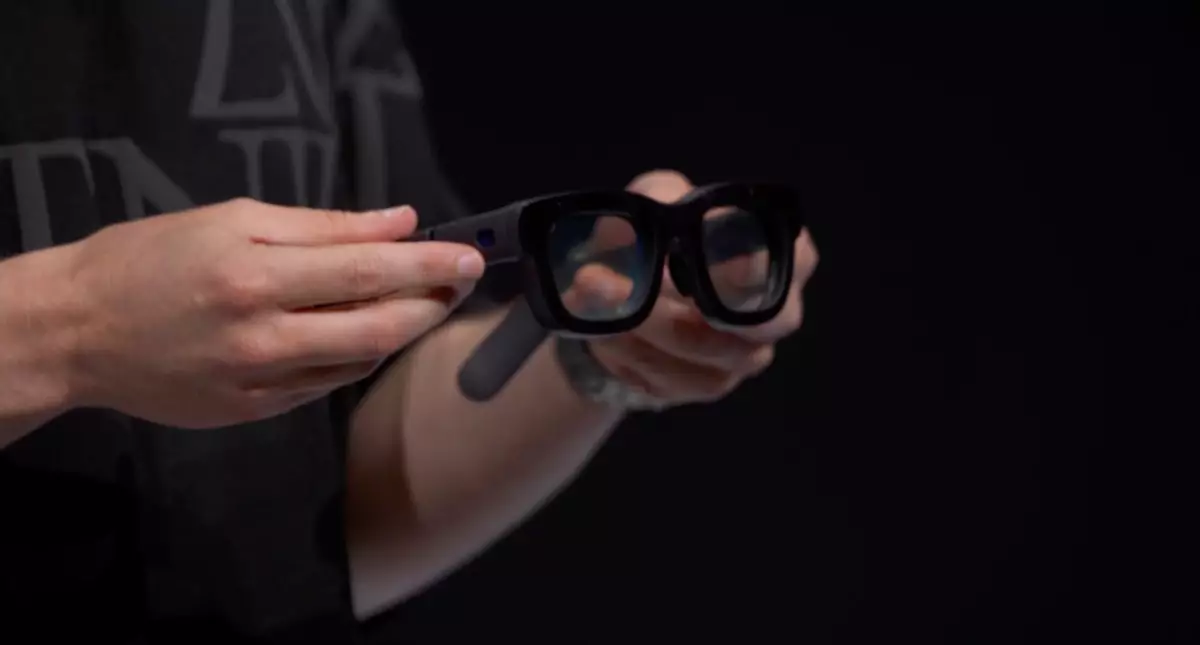The tech landscape is constantly evolving, and at the forefront of this evolution is augmented reality (AR). Meta, the parent company of Facebook, has made significant strides in this domain, particularly with the recent announcement of their new AR glasses, Orion. During the Meta Connect event held on Wednesday, CEO Mark Zuckerberg touted Orion as “the most advanced glasses the world has ever seen.” But what does this mean for the future of AR technology, and how does Orion stack up against existing products? Let’s delve deeper.
From Zuckerberg’s presentation, it becomes apparent that Orion is not merely an incremental improvement on existing products but potentially represents a paradigm shift in AR technology. Orion glasses are described as “true AR,” employing cutting-edge projectors integrated into the glasses’ temples to craft a heads-up display. This technology could redefine our interaction with digital content, likening it to an evolved version of Google Glass. The implication here is significant: while previous attempts at AR struggle with form factors and functionality, Orion promises to blend digital enhancements into our everyday view without overwhelming the user.
One of the striking features of Orion is its size—smaller than Snap’s Spectacles 5, they offer a more subtle and user-friendly design. This poses a critical question: can AR technology successfully integrate into daily life without being obtrusive? The answer largely depends on user experience, which has been a stumbling block for previous innovations.
Despite the ambitious promises surrounding Orion, it’s important to remember that the glasses are still in the developmental phase. Zuckerberg informed attendees that the product has been “a decade in the making” yet requires further optimization before reaching consumers. This stage of product development is as crucial as the technology itself. It underscores a trend in the tech industry where initial announcements are often more about generating hype than presenting fully-fledged products.
However, the introduction of a “neural interface,” via Meta’s acquisition of CTRL-labs, sets a fascinating precedent. This interface, which enables the glasses to be controlled through a wristband, offers a glimpse into a more intuitive method of interacting with technology. The shift away from traditional controls may transform the user experience, making it more seamless and organic.
Meta has positioned Orion as a successor to the “livestream product” Ray-Ban Meta, claiming to fulfill a long-held ambition of the XR industry for true AR glasses. The comparison with competing products is telling. Both Snap and Apple are making efforts in this space, with Snap’s large Spectacles and Apple’s Vision Pro offering competing functionalities. However, Orion’s claimed advantages—such as “the largest field of view in the smallest AR glasses”—may provide them a competitive edge.
This emphasis on field of view hints at the immersive potential of Orion. According to Meta, the expansive FOV can support a range of applications—from engaging multitasking to life-sized holograms—promising a more integrated and realistic interaction between the digital and physical worlds. Nonetheless, this proclamation needs empirical validation through rigorous testing and user trials.
Challenges Ahead: Financial Realities and Market Challenges
While excitement has surrounded the announcement of Orion, practical concerns lie beneath the surface. Reports indicate that the developmental cost for each unit of Orion reached approximately $10,000—quite a steep barrier that could impede its path to mass-market availability. The financial implications of such high development costs are significant; it’s a reminder of the risks associated with pioneering technology innovation.
In the past, Meta has lost money on initiatives like the Quest headsets, emphasizing the financial sustainability concerns facing the company. Thus, any commercial version of Orion will need to navigate the treacherous waters of consumer pricing and market demand while ensuring that the technological promises translate into a practical, affordable product.
Meta’s unveiling of the Orion glasses demonstrates the invigorating potential of augmented reality—an area where significant advancements could reshape our daily lives. Yet, skepticism remains. With the announcement likely designed to generate excitement rather than provide a complete picture, consumers and investors alike must critically evaluate whether Meta’s visions for Orion will materialize or simply evaporate into another overhyped tech promise. Ultimately, while Orion’s unveiling is undoubtedly a step forward, the journey from prototype to consumer product is fraught with challenges that will require thoughtful navigation in the coming years.


Leave a Reply